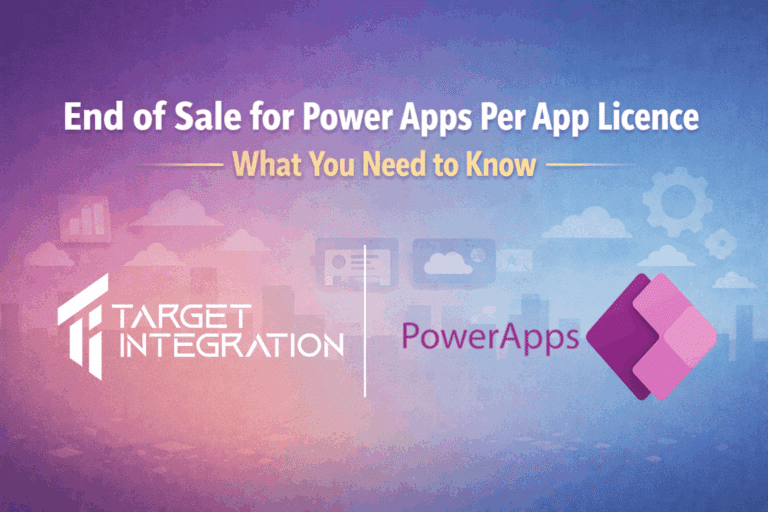A Customer Relationship Management (CRM) software and an Enterprise Resource Planner (ERP) software are two of the software used to automate and manage a businesses’ internal processes related to different functions like sales, marketing, customer service and technical support in case of a CRM software. An ERP software apart from having a CRM integrated within also helps in product planning, manufacturing and service, inventory and warehouse management and many more which can help in the successful automation of your business processes. Different organizations may be requiring CRM or ERP software at different levels of their growth. For instance, an organization with a big enough customer base might be requiring a CRM software now but they won’t be requiring an ERP until later when they have business processes requiring automation and flawless management. At this point the business owner needs to consider the following:
- Does he really need an ERP?You can read https://targetintegration.com/general/buying-an-erp-have-you-given-these-7-ultimate-points-a-thought to be clearer about this question!
- Should he have his ERP installed on-premise, on cloud or buy SaaS.Follow this link to have more insight about this topic: https://targetintegration.com/technical/benefits-of-odoo-on-cloud-and-as-saas
- This is the most important point to be considered. The business owner should think about whether he needs to go in for the services of a different software provider or should he have a software installed so as to integrate the CRM and ERP into one.
In this article let’s discuss the pros and cons of making both the choices. For getting separate software for ERP and CRM: Pros
- The major advantage of having separate software for ERP and CRM is that in case of data corruption in one of the software’s you would still have some data to bank upon.
- Also, you could have ERP only for employees requiring its access and the rest could continue to use the existing CRM.
- If you are not a very big company with only a few basic features requiring automation, getting only a CRM which is designed for such purposes for example the Vtiger CRM is a better option as it will not only help you in cost cutting but will also be easier to use as compared to an ERP which would be complicated owing to its multiple modules and larger functionality.
Cons:
- Costly:
This method is bound to cost you more as you will be paying for two different software.
- Tedious Look-after
Having to look after and keeping up with regular updating and handling of two software is a task in itself, inviting the need of more time, energy and money.
- Complicated Integration:
Your employees might not be able to make the most of the two separate installations as they might get confused using to disjoint software. Besides extracting data stored with two separate software, merging them for the optimized utilization of information, might be a time-consuming and tedious task. If you plan to integrate your CRM with the ERP itself, you have following benefits:
- Lower Cost:
If you plan to go in for separate software for ERP and CRM needs, you would probably be at a loss. Even if you chose the same vendor for providing ERP and CRM, you would be incurring higher cost for your company as you would be paying for the design, maintenance and support of two separate software. But with integration of both into one software, you would see a considerable reduction in your costs.
- Easier Maintenance:
When you have the same vendor, the maintenance and support becomes easier as you do not have to rely on multiple companies for help. Plus a single training session will have your employees well-versed with the entire functionality instead of two different software training sessions.
- Better design:
When you get your software designed or customized by your vendor, having it done from one vendor always turns out to be better for the business. This is because, it will be one unified design, and be a perfect fit your company needs instead of two segregated disjoint software.
- Ease of usage for employees:
When you get any software for your business, it is intended for the betterment of your work as well as the ease of employees. Having two completely different software will rather confuse your employees, in place of improving their efficiency.
- Ease of accessibility:
Having all the data that you or your employees might be requiring during the work day is best stored at one place. If they have to continuously switch between software for different information pieces, they would waste a lot of their work time and hence it is an indirect loss for you.
- Better integration of data:
With both ERP and CRM integrated as one software, you have a better visibility of data. All the existent data can be inter-related in different modules of ERP and hence help you take better decisions for your business. Cons: For the staff with not good enough technical knowledge, using a larger software might be troublesome especially when their needs could be fulfilled with the help of just a CRM. I believe this article has helped you to see clearly and decide which integration would suit your business well. If you have any queries you can drop an e-mail at [email protected] *image source: http://bit.ly/1FuldI4



